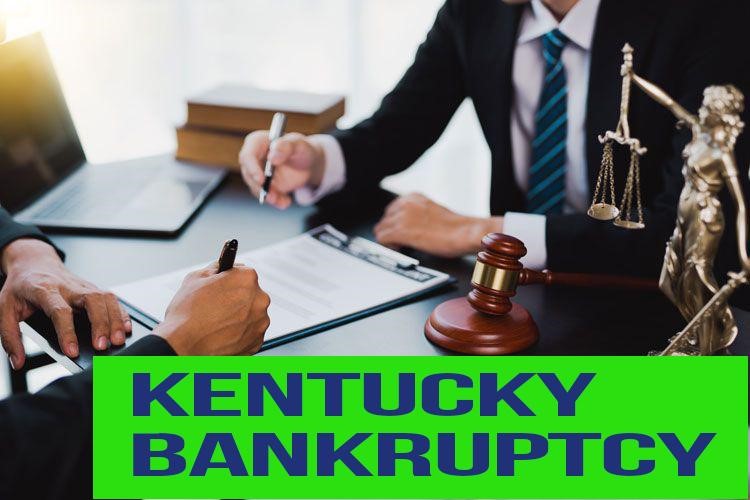
Kentucky Bankruptcy: A Comprehensive Guide
Introduction
In the heart of the United States lies the Bluegrass State, Kentucky, known for its rolling hills, horse racing, and bourbon. However, beneath its picturesque landscapes, some individuals and businesses face financial challenges that lead them to consider bankruptcy as a solution. In this comprehensive guide, we will delve into the nuances of Kentucky bankruptcy, exploring its types, processes, and essential information.
Understanding Bankruptcy
Before we dive into Kentucky-specific details, let’s establish a fundamental understanding of bankruptcy.
What is Bankruptcy?
Bankruptcy is a legal process that provides individuals and businesses experiencing overwhelming debt with a fresh financial start. It involves the filing of bankruptcy petitions, the assessment of assets and liabilities, and the distribution of assets to creditors.
Kentucky Bankruptcy Types
Kentucky adheres to federal bankruptcy laws but also incorporates some unique state-specific aspects. Let’s explore the various bankruptcy types applicable in Kentucky.
1. Chapter 7 Bankruptcy
Chapter 7 bankruptcy, often referred to as “liquidation bankruptcy,” allows individuals and businesses to discharge unsecured debts, such as credit card bills and medical expenses. It involves the liquidation of non-exempt assets to repay creditors.
2. Chapter 13 Bankruptcy
Chapter 13 bankruptcy, also known as “reorganization bankruptcy,” enables individuals with a regular income to create a repayment plan to clear their debts over a specified period, typically three to five years.
3. Chapter 11 Bankruptcy
Chapter 11 bankruptcy primarily caters to businesses and corporations. It allows them to restructure their debts and continue operations while repaying creditors over time.
Filing for Bankruptcy in Kentucky
Filing for bankruptcy in Kentucky involves several essential steps.
1. Eligibility Assessment
Before filing, individuals must meet specific eligibility criteria, such as income levels and previous bankruptcy discharges.
2. Credit Counseling
Kentucky law mandates that individuals must attend credit counseling from an approved agency before filing for bankruptcy.
3. Bankruptcy Petition
Once eligible, individuals submit a bankruptcy petition, detailing their financial situation, assets, liabilities, income, and expenses.
4. Automatic Stay
Upon filing, an automatic stay is issued, preventing creditors from taking further collection actions.
The Bankruptcy Process
The bankruptcy process in Kentucky comprises several phases.
1. Meeting of Creditors
A meeting with creditors is held, allowing them to question the debtor’s financial affairs and repayment plan.
2. Asset Liquidation (Chapter 7)
In Chapter 7 cases, non-exempt assets are liquidated, and the proceeds are distributed to creditors.
3. Repayment Plan (Chapter 13)
Chapter 13 debtors must adhere to their repayment plans, ensuring regular payments to creditors.
Kentucky Bankruptcy Exemptions
Kentucky offers specific exemptions that protect certain assets from liquidation during bankruptcy.
1. Homestead Exemption
Kentucky provides a homestead exemption, safeguarding a portion of the equity in the debtor’s primary residence.
2. Personal Property Exemptions
Debtors can exempt essential personal property, such as clothing, household goods, and vehicles, up to certain monetary limits.
Alternatives to Bankruptcy
Bankruptcy is not the only option for those facing financial difficulties in Kentucky.
1. Debt Consolidation
Debt consolidation involves combining multiple debts into a single, manageable loan with lower interest rates.
2. Credit Counseling
Credit counseling agencies in Kentucky offer debt management plans that can help individuals repay their debts more effectively.
Conclusion
In the realm of Kentucky bankruptcy, understanding the types, processes, and alternatives is crucial. It’s essential to make informed decisions that align with your unique financial situation. Bankruptcy can offer relief, but it’s not without its complexities.
Frequently Asked Questions
1. Is bankruptcy the only option for debt relief in Kentucky?
No, bankruptcy is not the sole option. Alternatives like debt consolidation and credit counseling can also help individuals manage their debts effectively.
2. How long does a Chapter 7 bankruptcy process typically take in Kentucky?
The duration of a Chapter 7 bankruptcy case can vary, but it often takes around three to six months to complete.
3. Can I keep my house and car if I file for bankruptcy in Kentucky?
Yes, Kentucky provides exemptions that allow debtors to keep a portion of the equity in their primary residence and essential personal property, including a vehicle.
4. Are there income limits for filing Chapter 7 bankruptcy in Kentucky?
Yes, there are income limits to qualify for Chapter 7 bankruptcy in Kentucky. Your eligibility depends on your income and expenses, and it’s advisable to consult with a bankruptcy attorney for guidance.
5. Where can I find more information on Kentucky bankruptcy laws and processes?
For detailed information and personalized assistance, consider consulting a qualified bankruptcy attorney in Kentucky. They can provide you with the most up-to-date guidance on bankruptcy laws and processes in the state.



